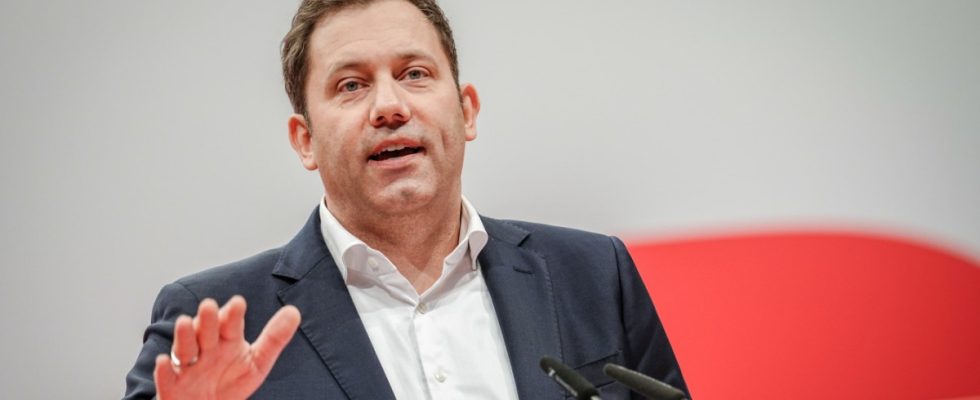SPD party leader Lars Klingbeil calls on the federal states to implement the deportation offensive suggested by Chancellor Olaf Scholz. “The federal states now have the options – and they have to use them,” said Klingbeil New Osnabrücker Zeitung. “The state must function when it comes to repatriating people who cannot stay with us.”
Also FDP general secretary Bijan Djir-Sarai called on the federal states to carry out deportations of foreigners who are obliged to leave the country more consistently. “The federal government will not be able to solve the problem on its own. Now that the legal conditions for more effective returns have been created, the states must now use them specifically and carry out more deportations,” said Djir-Sarai Rhenish Post.
An extension of exit custody should prevent deportations from failing at the last moment in the future. After a long tug of war in the coalition, the Bundestag passed a corresponding law two weeks ago with a majority of the traffic light – even if some Green MPs voted against it. At the end of last year, according to the Federal Ministry of the Interior, around 243,000 people were registered as having to leave the country, of which the vast majority – around 194,000 people – had a tolerated stay. They must not be deported. According to the Federal Ministry of the Interior, there were 16,430 deportations in 2023.
The law provides for procedural simplifications and tightening of rules to make deportations easier. Scholz had one in the fall of 2023 Mirror-Interview said: “We finally have to deport on a large scale those who have no right to stay in Germany.” Djir-Sarai said that the EU Commission must do much more to conclude migration agreements at European level with relevant countries of origin. He renewed the call for other countries to be classified as safe countries of origin, specifically mentioning Tunisia, Morocco and Algeria. “It is regrettable that the Greens are still blocking themselves here,” said the FDP politician.
SPD parliamentary group vice-president Dirk Wiese However, sees significant progress in the negotiations on new migration agreements with countries of origin. “Unfortunately, after 16 years of a Union-led Interior Ministry, we had to start almost from scratch when it came to migration agreements,” said Wiese Rhenish Post. “Federal Interior Minister Nancy Faeser and the Special Representative for Migration Agreements, Joachim Stamp, are working hard and with visible results to conclude bilateral migration agreements in the interests of both sides.” Special Representative Stamp (FDP) will be in office for one year on February 1st.
The Union, however, gave Stamp a bad report card. “The Federal Government Commissioner is fighting a losing battle. You cannot delegate such a task to an official with a handful of employees,” said the Parliamentary Managing Director of the Union faction, Thorsten Frei (CDU), the Rhenish Post. “The Foreign Minister and, in certain countries, the Chancellor are called upon to address this major issue.” The information about the status of the migration agreements is “extremely sparse”.

